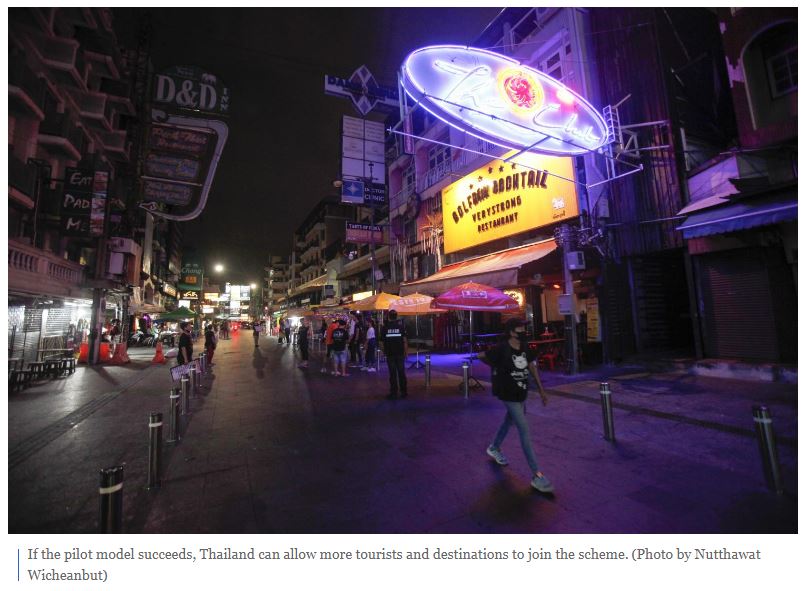Thailand: TAT says country ready to reopen
Thailand will have to tolerate the possibility of new coronavirus cases when it reopens its borders to international tourists, but the country can minimise the impact and avoid a bruising level of unemployment with risk management, says the Tourism Authority of Thailand (TAT).
After the country reported its first local transmission in 100 days last week, the TAT downgraded its 2020 estimates to 70 million domestic trips from 80 million, contributing 418 billion baht in revenue, a decrease of 61% from 2019.
International arrivals remain unchanged at 6.7 million, the same forecast before the border closure, with revenue of 332 billion baht, down 65% from 2019.
“We have to bring in tourists by the last quarter as the domestic market alone cannot keep tourism workers employed. If we keep delaying their entry, around 2.5 million jobs out of 4 million will be at risk,” said TAT governor Yuthasak Supasorn.
Mr Yuthasak said hotels should count on an average occupancy rate of 30% to stay afloat, with the nationwide figure now at 28%.
But if domestic tourists increase their trips to 100 million next year, and the inbound plan runs smoothly from the end of this year, paving the way for 20.5 million international tourists in 2021, the average occupancy rate may increase to 50%, he said.
Unforeseeable events, such as the detection of an infection in Rayong and a new case in Bangkok, have pushed back the plan.
To reopen the country to tourists, the government should implement a careful plan and improve communications to avoid local opposition, said Mr Yuthasak.
The current plan is to open the country to international tourists with a limited number of arrivals and locations. Arrivals have to comply with strict safety and health measures and the same screening and surveillance procedures as Thai returnees.
If the pilot model succeeds, Thailand will allow more tourists and more destinations to join the scheme.
“We cannot avoid new cases, but the most important thing is to have risk management in place. If there are five cases among 5 million tourists, and we can contain those infections with stringent measures, that would be a good balance between public health and business survival,” he said.
Meanwhile, the TAT plans to propose to the cabinet next week a special tourist visa scheme for long-stay visitors that costs around 2,000 baht and can be extended up to 270 days.
The TAT is working with the private sector on the next step, finding safety measures viable for short-haul visitors who cannot stay for a two-week quarantine. This plan require need bilateral agreements with targeted countries, said Mr Yuthasak.
Marisa Sukosol Nunbhakdi, president of the Thai Hotels Association, said zero infections is an unrealistic target for the tourism industry. The country should find a balance between risk and gain, she said.
The Public Health Ministry must inform the public alternative state quarantine (ASQ) hotels in tourism destinations will have the same standards as those in Bangkok, said Mrs Marisa. If certified hotels operated with no problems the past few months, the plan to welcome tourists to those ASQ properties will not trigger new cases, she said.
Source: https://www.bangkokpost.com/business/1982735/tat-says-country-ready-to-reopen


 Thailand
Thailand




